Artists against TTIP, and how the new ICS differs from ISDS (spoiler – not much)
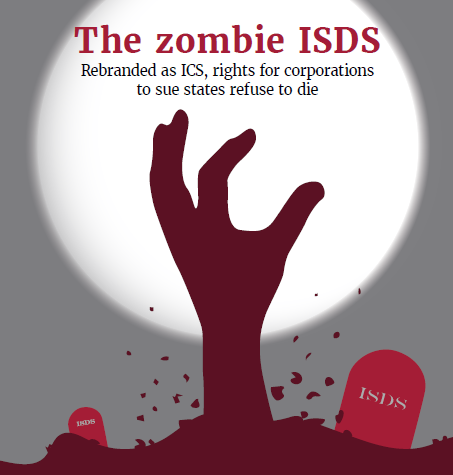
‘Corporate interests have got to stop coming first’ – well said, Juliet Stevenson. A group of artists including actors Ruth Wilson, Andrew Scott and Juliet Stevenson and designer Vivienne Westwood are fronting a campaign (artistsagainstttip.org) to raise public awareness of the trade deal TTIP (pronounced tee-tip) which is being secretly negotiated between the EU and the US.
Here’s a video they’ve recently put out, that starts ‘you may never have heard of TTIP’ – although I hope you have by now. Here’s a beginners guide if you haven’t, and here’s a lot more information.
That’s a pretty good introduction, really.
It’s mentioned in the video that multinational corporations will be able to sue elected governments that introduce any policies that can be shown to reduce their profits – even if those policies are to protect public health or the environment. This is called the investor-state dispute settlement – more here.
The EC and the US have taken on board people’s concerns, and done the right thing (i.e. the right thing for corporations) – they’ve changed the name from ISDS to ICS (investment court system – more here), because the acronym ISDS was starting to become toxic.
Now the Corporate Europe Observatory have produced a report outlining the differences / similarities between ISDS and ICS. Their conclusion is that ICS is a ‘zombie ISDS’ – brought back from the dead.
Here’s the full report, and below is a checklist of ISDS concerns that have or have not been addressed by the change to ICS.
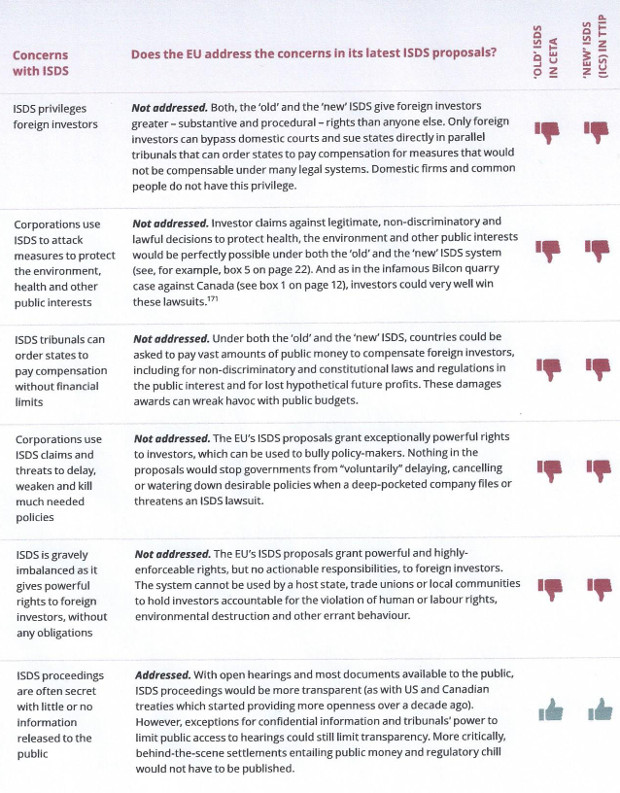
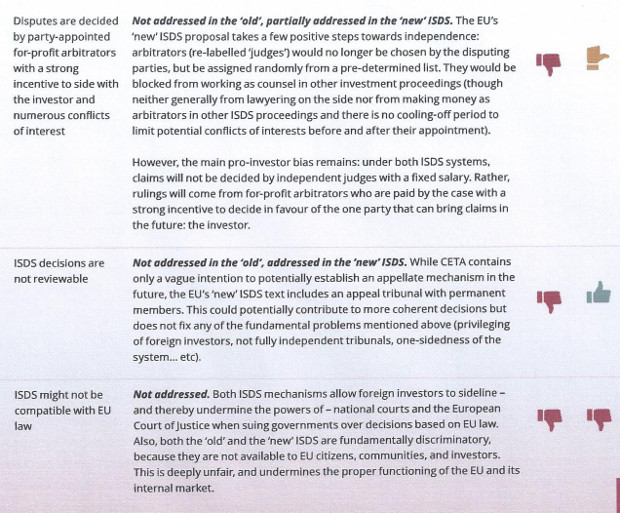
Friends of the Earth agree. They’ve produced a document – Investment Court System: ISDS in Disguise – ten reasons why the EU’s proposal doesn’t fix a fatally flawed system.
If you’d like to join the fight against TTIP, these are the people to talk to:
The views expressed in our blog are those of the author and not necessarily lowimpact.org's
3 Comments
-
1Steve Gwynne March 3rd, 2016
Not sure if you already know about Cameron’s negotiated EU settlement “The best of both worlds: the United Kingdom’s special status in a reformed European Union”.
https://www.gov.uk/government/publications/the-best-of-both-worlds-the-united-kingdoms-special-status-in-a-reformed-european-union
Within it (2.69) is explict UK approval/consent of the TTIP if the UK votes to remain in the EU in the up and coming referendum.
-
2Shaun Chamberlin (@DarkOptimism) March 3rd, 2016
That sounds all too plausible, but doesn’t appear to quite be the case. As far as I can see, 2.69 in the document you link to is:
“2.69 The Prime Minister made clear in his speech on Europe in November 2015 that ‘ever closer union is not a commitment that should apply any longer to the UK. We do not believe in it. We do not subscribe to it. We have a different vision for Europe.’ The International Law Decision puts into practice our different vision for Europe. It makes clear that the Treaty references to an ‘ever closer union’ are “compatible with different paths of integration and do not compel all Member States to aim for a common destination”. It also makes clear that the EU has expressly accepted the UK is not following a path to political integration in Europe. It establishes in law a recognition that the UK can have a different vision of its European future.”
No mention of TTIP there. It is indeed mentioned approvingly later (in 4.7, below), but despite the language treating it as a foregone conclusion I don’t see an explicit UK approval/consent to it therein (not that I doubt Cameron’s eagerness to sign us up):
“4.7 At the same time, the UK benefits from the EU’s greater economic leverage, which has allowed it to negotiate advantageous FTAs with more than 50 other countries. This allows us to take advantage of growth opportunities around the world. Concluding all the trade deals already underway could ultimately be worth in total more than £20 billion a year to UK GDP. Once these deals are completed around three-quarters of UK exports to non-EU countries would be covered by an EU-negotiated Free Trade Agreements (sic). The Transatlantic Trade and Investment Partnership (TTIP) alone could add £10 billion to UK GDP.”
-
3Steve Gwynne March 4th, 2016
2.59 Our new settlement has secured a clear commitment that the EU will pursue an ‘active
and ambitious’ trade policy with the world’s most dynamic economies, prioritising the US,
Japan, and other important partners in the Asia-Pacific region and Latin America.
2.63 Concluding all the trade deals already underway could ultimately be worth in total more
than £20 billion a year to UK GDP.34 These include the UK’s top trade priority: an agreement
between the EU and the US (the Transatlantic Trade and Investment Partnership), which
alone could add £10 billion to UK GDP. It will offer real benefits to UK consumers through
increased choice, lower prices, more job opportunities and increased wages.35 The European
Commission estimates that the average household will benefit by nearly £400 per year.
Yes I know what you mean. What I mean is that by voting to remain gives explicit UK approval to this settlement. Whether it is legally binding in EU law is still in dispute but it has been argued that since it has been signed off by 28 Heads of State (the EU Council) it can be used as soft law in the EU Court of Justice which in itself could set a precedence in EU case law. Sorry for my bad use of language. So many blogs on the subject has led to a rather editted version of the original. Cheers.




 ‘Business Against TTIP’ launched yesterday; we could actually win this
‘Business Against TTIP’ launched yesterday; we could actually win this
 NHS Chief Executive was a founder member of an organisation lobbying for health to be included in TTIP
NHS Chief Executive was a founder member of an organisation lobbying for health to be included in TTIP
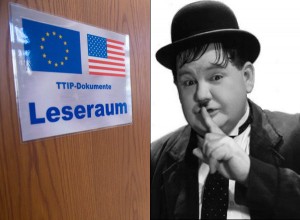 Read this German MP’s account of the TTIP reading room and decide what you think about TTIP ‘transparency’
Read this German MP’s account of the TTIP reading room and decide what you think about TTIP ‘transparency’
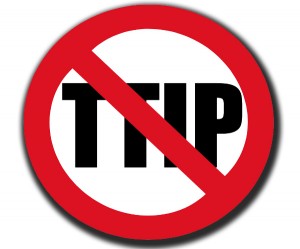 Can you think about sending this letter (or something similar) to your MP about TTIP?
Can you think about sending this letter (or something similar) to your MP about TTIP?
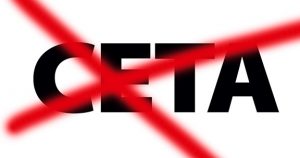 Want to help stop CETA? Here’s something you can do (before Wednesday)
Want to help stop CETA? Here’s something you can do (before Wednesday)
 Commons economy
Commons economy
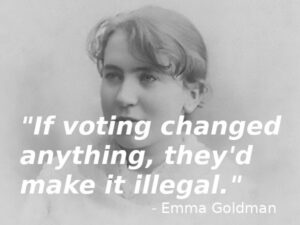 The 'democracy problem'
The 'democracy problem'


